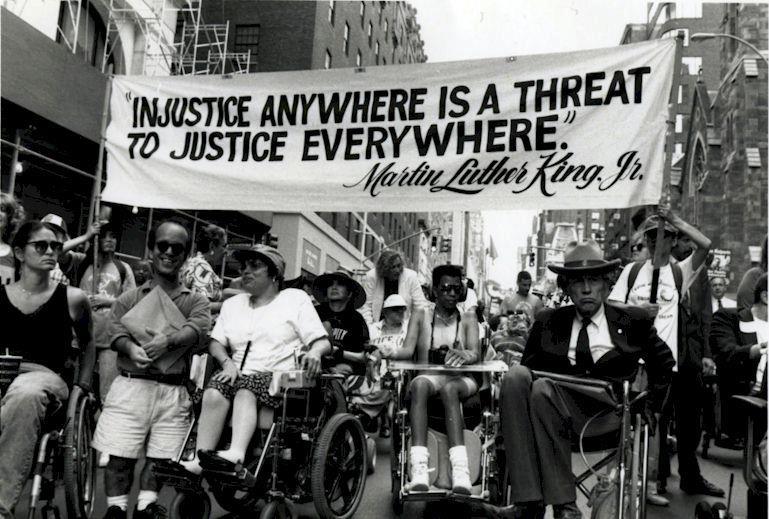Nicholas Midrashim: Noach
Noah Fails To Save Most Humans
Cartoons by Nick, drawn in Paint Shop Pro 6.
All sources from Chabad.org: Parshat Noach
Rashi teaches us:
“Many ways to bring relief and rescue are available to Him; why, then, did He burden him with this construction [of the ark]?
In order that the people of the Generation of the Flood should see him occupying himself with it for one hundred twenty years and ask him, “For what do you need this?” And he would say to them,“The Holy One, blessed be He, is destined to bring a flood upon the world.” Perhaps they would repent. – [Aggadath Bereishith 1:2, Tan. Noach 5, Tan. Buber Bereishith 37, Gen. Rabbah 30:7]”
“For what do you need this?”
“HaKodesh Baruch Hu is destined to bring a flood upon the world.”
“What? Why?”
“The earth has become corrupt before G-d! The earth is full of robbery!” (Gen. 6:11)
“Everything is corrupted! There is no order or respect, people loot and do whatever they want! There are no boundaries at all; there is even mating between different species! dogs and cats living in peace! it’s madness!” (Tan. Noach 12)
“Why would the generation of the Flood be utterly destroyed, but not the generation of the Tower? Because the generation of the Flood is consumed by robbery and violence, while amongst the generation of the Tower love prevailed.” (Midrash Rabbah)
“Behold! Fowl and beast and man alike shall be destroyed from the earth!” (Gen. 6:13)
“So said the Lord of Hosts, Return to Me, said the Lord of Hosts, and I will return to you, said the Lord of Hosts.
So said the Lord of Hosts: Return now from your evil ways and your evil deeds!” (Zechariah 1:3-4)
“Meh. Whatever, you crazy old geezer. You can keep your religious fanaticism. I just bought gilded pottery and 72 virgins.”
“Renounce your money! Give it to the poor!” (Deuteronomy 15:7-8)
“Right. ByeBye.”
“The wicked boasts of his heart’s desire; he blesses the greedy and renounces Hashem!” (Psalms 10:3)
For my Christian readership, Matthew 19:21-22 is a good mirror of this scenario:
Jesus said to him, “If you want to be perfect, go, sell what you have and give to the poor, and you will have treasure in heaven; and come, follow me.”
But when the young man heard that saying, he went away sorrowful, for he had great possessions.
“Now the Flood was forty days upon the earth, and the waters increased, and they lifted the ark, and it rose off the earth.” (Gen. 7:17)
“Everything that had the breath of the spirit of life in its nostrils, of all that were on the dry land, died.” (Gen. 7:22)
“Noach was a righteous man in his generation.” (Gen. 6:9)
In other words, Noach’s involvement with others was limited to his sense of what he ought to do for them, as opposed to a true concern for their well-being. He understood the necessity to act for the sake of another, recognizing that to fail to do so is a defect in ones own character; but he fell short of transcending the self to care for others beyond the consideration of his own righteousness.
This also explains a curious aspect of Noach’s efforts to reach out to his generation. When the Flood came, Noach and his family entered the ark — alone. His 120-year campaign yielded not a single baal teshuvah (repentant)! Perhaps public relations was never Noach’s strong point, but how are we to explain the fact that, in all this time, he failed to win over a single individual?
But in order to influence others, one’s motives must be pure; in the words of our sages, “Words that come from the heart, enter the heart.” Deep down, a person will always sense whether you truly have his interests at heart, or you are filling a need of your own by seeking to change him. If your work to enlighten your fellow stems from a desire to “do the right thing” but without really caring about the result, your call will be met with scant response. The echo of personal motive, be it the most laudable of personal motives, will be sensed, if only subconsciously, by the object of your efforts, and will ultimately put him off.
(The Lubavitcher Rebbe)
Genocide can only be seen as a failure of mankind. Noach’s success, like ours today, has been limited. In every chapter of Torah the message is loud and clear: we have to do more.
We have to do more. BS”D this will be a year of doing more: more mitzvos, fewer sins of violence, robbery and economic disenfranchisement, which have gone so far they’ve now been legislated.
Fewer avieros (transgressions), more mitzvos.
We have to do more.
B”H!
Nick





